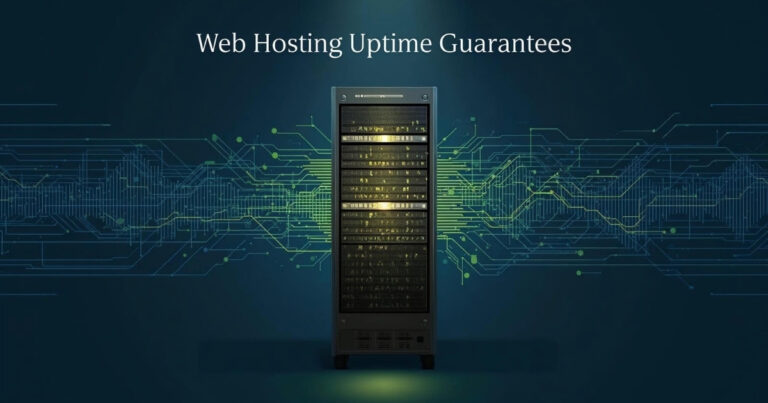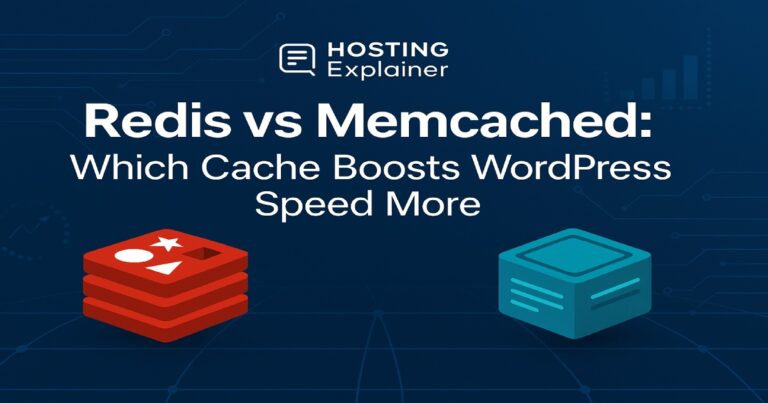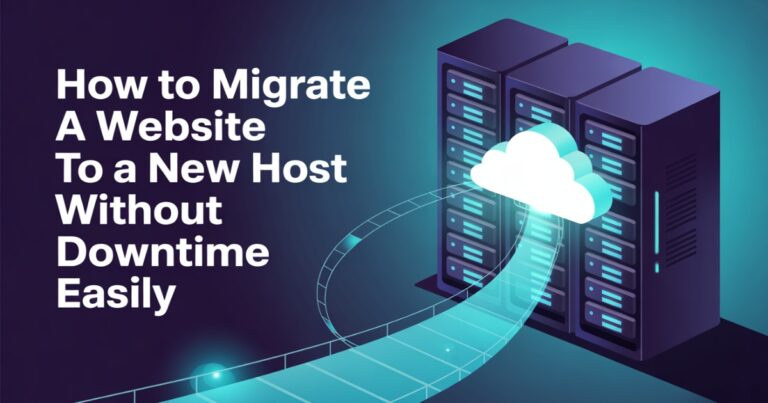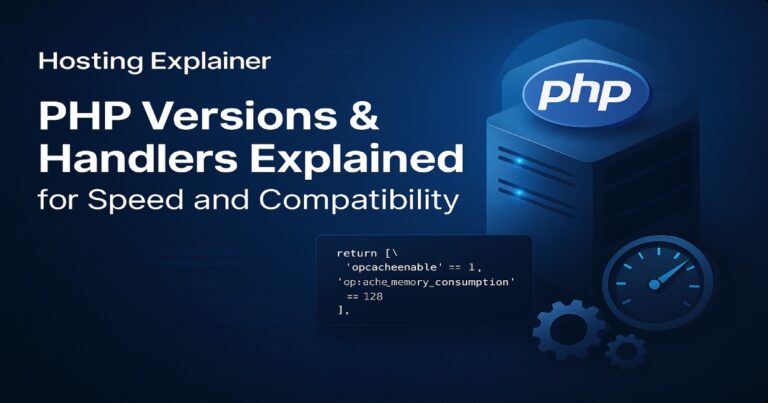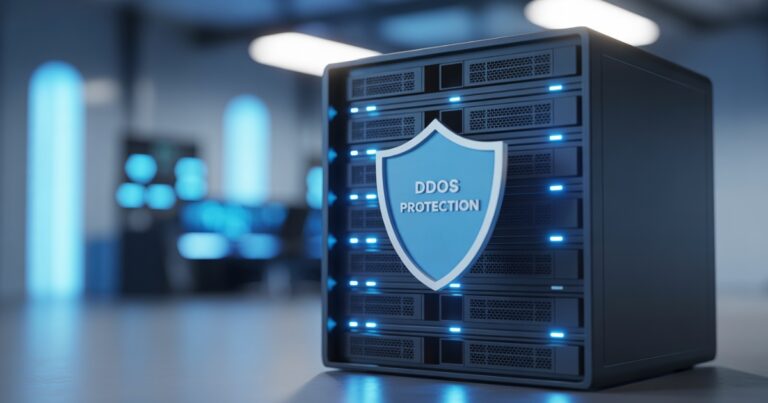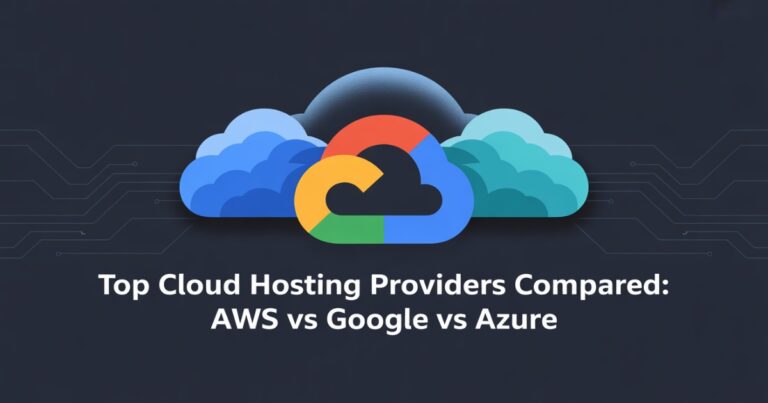Secure Your Website: Hosting-Level Security Tips That Work
When I launched my first website, I thought installing a few plugins was enough to keep it safe. I was wrong. Within weeks, my site was hit with malware because my hosting setup was weak.
That’s when I learned the truth: hosting isn’t just storage space. It’s the foundation of your website’s security.
In this guide, I’ll share practical hosting-level security tips that will help you protect your site from hacks, downtime, and data loss. I’ll also highlight what to look for in a secure host and share lessons from my own experience.
What Is Hosting-Level Security?
Hosting-level security is the protection built into your web server. It works behind the scenes, guarding your site before threats even reach your CMS or plugins.
Think of it like the lock on your front door. Even if you install alarms inside, that lock is your first defense. The same is true for secure website hosting. Without it, your site is always at risk.
Strong hosting security combines multiple layers: firewalls, SSL certificates, backups, intrusion detection, and account-level controls. Together, they create a shield that reduces the chance of hacks, malware, or downtime.
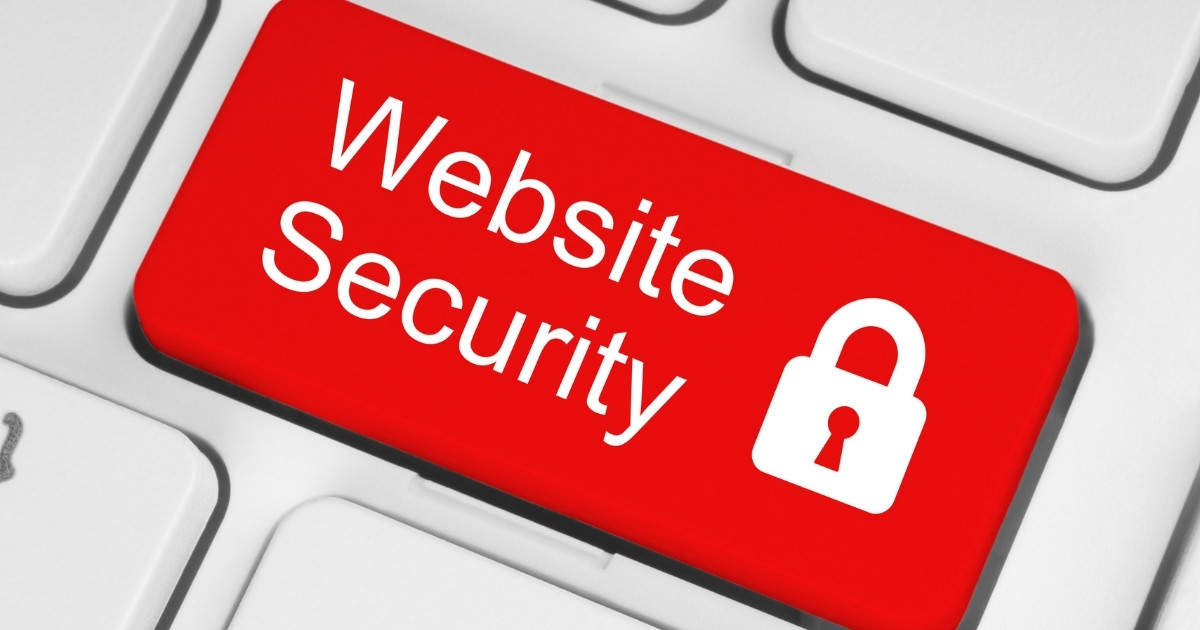
Key Hosting-Level Security Features to Look For
Earlier, I explained why hosting is your first line of defense. Now, let’s break down the most important features you should demand from your hosting provider.
1. SSL Certificates & HTTPS
An SSL certificate encrypts data between your site and visitors. It’s what makes your site load as HTTPS instead of HTTP.
- It protects sensitive info like logins or payments.
- Google uses SSL as a ranking factor.
- Browsers now show “Not Secure” warnings without it.
I still remember the day a client’s eCommerce site showed a red warning in Chrome because their SSL expired. Sales dropped instantly. That’s how much trust depends on HTTPS. If your host doesn’t include free SSL, it’s time to switch.
2. Firewalls & DDoS Protection
A firewall blocks malicious traffic before it reaches your site. It filters bad bots, brute force attempts, and common hacks.
DDoS (Distributed Denial of Service) attacks flood your server with fake traffic. Good hosts include DDoS protection to keep your site online even under heavy load.
On one client’s site, a firewall prevented thousands of bot requests in a single night. Without it, their server would have crashed and stayed offline for hours.
3. Malware Scanning & Intrusion Detection
Hackers love to inject hidden code into sites. Malware scanners find these threats early, while intrusion detection systems alert you when someone tries to break in.
A strong host will:
- Run daily malware scans.
- Send real-time alerts.
- Quarantine infected files.
This feature saved me hours of stress when a scan caught a phishing script before it went live. It’s like having a security guard checking every package before it enters your house.
4. Automated Backups & Disaster Recovery
Even the best defenses can fail. That’s why backups are non-negotiable.
Your host should offer:
- Daily backups.
- Offsite storage.
- One-click restore options.
I once recovered a hacked site in minutes because of daily backups. Without them, the client would have lost weeks of content and customer orders. Backups are not just an option—they’re your safety net.
5. Secure Server Configuration & Hardening
Server hardening means tightening every possible entry point. A good host will:
- Keep systems patched and updated.
- Close unused ports.
- Limit root access.
If you manage your own VPS or dedicated server, this step is on you. For most users, choosing a host that handles it is easier and safer. Server misconfigurations are a common cause of breaches, yet one of the easiest to prevent.
6. Account-Level Security
Don’t forget your hosting login itself. Hackers often target control panels like cPanel or Plesk.
Look for:
- Two-factor authentication (2FA).
- Strong password policies.
- Role-based access if multiple people use your account.
A weak hosting account password is like leaving the keys in your front door. It doesn’t matter how strong your firewall is if someone walks in through the front.
Shared vs. VPS vs. Dedicated Hosting Security
Not all hosting types are equal when it comes to security. Here’s a quick breakdown:
| Hosting Type | Security Risks | Best For |
| Shared | Shared resources, higher chance of cross-site attacks | Small blogs |
| VPS | Isolated environment, more control | Growing sites |
| Dedicated | Full control, max security | Large sites & eCommerce |
Shared hosting is fine for beginners, but it puts you at risk if a neighbor site gets hacked. VPS hosting adds isolation, which means your site is safer.
Dedicated hosting gives you full control, but you also need the technical skills (or managed support) to keep it secure.
When my traffic grew beyond a few thousand visits a day, moving from shared hosting to VPS was the best decision I made. Performance improved, and so did security.
How to Choose a Secure Hosting Provider
Now that you know what features matter, let’s talk about picking the right host.
A secure provider should offer:
- Free SSL certificates.
- Built-in firewalls and DDoS protection.
- Automated backups with restore options.
- 24/7 monitoring and quick support.
Red flags to avoid:
- Ultra-cheap hosting with no mention of security.
- Limited or outdated backup options.
- No clear policy on intrusion detection.
I once had to migrate three client sites in a week after a budget host failed to stop a malware outbreak. Saving a few dollars a month cost them thousands in lost business.
Hosting-Level Security Best Practices (Pro Tips)
Even with a secure host, your actions matter. Here are some quick wins:
- Don’t reuse passwords across accounts.
- Always enable 2FA for your hosting and registrar.
- Keep PHP and MySQL versions updated.
- Use staging sites to test updates before going live.
- Monitor server logs for unusual activity.
- Regularly audit who has access to your hosting account.
These small steps make a big difference. On one project, simply removing unused FTP accounts shut down a hacker’s backdoor attempt.
FAQs About Hosting-Level Security
1. Do I need hosting-level security if I already use WordPress plugins?
Yes. Plugins protect your CMS, but hosting security stops threats before they get that far.
2. What’s the most important hosting security feature?
SSL, firewalls, and backups are essential. Without them, your site is always at risk.
3. How often should I back up my website?
Daily backups are best. At minimum, weekly backups should be in place.
4. What’s the difference between hosting-level and website-level security?
Hosting secures the server and network. Website-level security (plugins, settings) protects your CMS. You need both.
5. Can I secure my website without switching hosts?
Yes, to a point. You can add firewalls, use CDN security like Cloudflare, and harden WordPress. But if your host lacks basics like SSL or backups, changing providers may be the safer long-term move.
6. Does VPS hosting always mean better security?
Usually, but only if managed well. VPS gives isolation and flexibility, but you or your host must configure it correctly.
Secure Hosting = Safer Website
We’ve covered why hosting security matters, the key features to look for, and how to choose the right provider. We also looked at best practices you can apply today.
Don’t treat hosting as just storage. It’s the lock, alarm, and safety net for your entire site. Choose a provider that includes SSL, firewalls, backups, and monitoring, and you’ll save yourself countless headaches down the road. Protecting your website starts with protecting your hosting. Don’t wait until after a hack to make the change.

